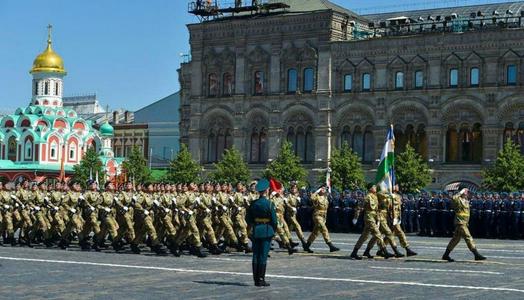A fatwa (religious ruling) declaring that Muslims working in courier services and logistics are forbidden to deliver goods considered “haram” (prohibited in Islam) contradicts the Russian Constitution, said Valery Fadeev, Presidential Adviser and Head of the Russian Human Rights Council (HRC).
Fadeev emphasized that the fatwa violates at least five constitutional articles:
▪️ Article 14, which defines Russia as a secular state. “The DUM RF’s (Spiritual Administration of Muslims) ruling effectively seeks to regulate labor and civil law relations, which fall under the exclusive jurisdiction of federal legislative authorities,” Fadeev explained.
▪️ Article 8, which guarantees the unity of the economic space and free movement of goods and services. “The DUM RF’s conclusion creates artificial barriers to this movement, violating that principle.”
▪️ Article 37, on the freedom to choose one’s occupation and profession: “This right allows citizens to freely choose the work they wish to do.”
▪️ Article 19, which prohibits any restriction of rights based on social, racial, national, linguistic, or religious affiliation: “The fatwa imposes an unjustified restriction on labor freedom on religious grounds.”
▪️ Article 29, which bans propaganda or agitation inciting social, racial, national, or religious hatred and hostility: “The DUM RF’s decision is aimed at stirring religious discord… Its implementation would lead Muslim couriers to set themselves apart from others and to classify their clients accordingly.”
The Spiritual Administration of Muslims announced the fatwa on October 7. It permits the transport of halal goods—such as food, meat slaughtered according to Islamic norms, vegetables, clothing, furniture, electronics, books, and medicine. However, delivering alcoholic beverages, gambling paraphernalia, pagan religious items, pork, or any other products contrary to Islamic teachings is deemed impermissible.
The fatwa also outlines how to act when handling mixed shipments. If a package contains both halal and haram goods but the former predominate, delivery is allowed provided the courier later gives alms. If the contents of a package are unknown—for instance, in sealed boxes—the delivery is also permitted, since the responsibility does not rest with the courier.
In December 2024, the DUM RF drew wide attention with another fatwa declaring polygamy permissible. The Council of Ulema stated that a Muslim man may have up to four religious marriages (nikah), provided he treats all wives equally and justly. The Prosecutor General’s Office responded that the ruling contradicted Russian law and the state’s family policy aimed at preserving and strengthening traditional Russian spiritual and moral values. The office issued a formal reprimand to DUM Chairman Shamil Alyautdinov over his comments on polygamy, after which the Council of Ulema withdrew the fatwa.










